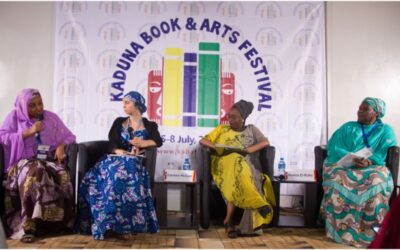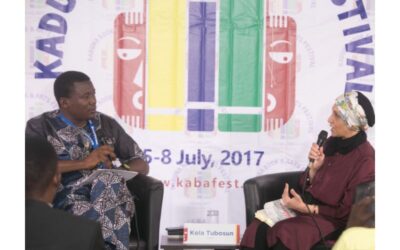Religious Violence: Picking Up the Pieces
This panel was moderated by the amazing Chitra Nagarajan. The background to the conversation was the fact that in the eighties, the north was more liberal, and how the proliferation of Islamic sects and churches had caused the violence in Northern Nigeria.
Andrew Walker said it was important to put the issue of Boko Haram in context for a proper understanding of the issues at hand. The issue of religious violence usually started with the rise of a charismatic religious leadership who after winning a huge followership, would begin to rebel against other structures of power. Segun Adeniyi said the whole country was experiencing violence and that was a symptom of a failing state. Abubakar Othman said Islam has always been prescriptive and static, so the problem of violence was not religious, but its use as a platform. This he asserted was because religion was also a victim of violence.
Razinatu Mohammed noted that government irresponsibility and the Nigerian judiciary was compromised and that has made the dispensation of justice difficult. She argued that a responsible government who have the people at heart could always tackle the problem of violence. She also called on government regulation in monitoring preachers and religious bodies.

